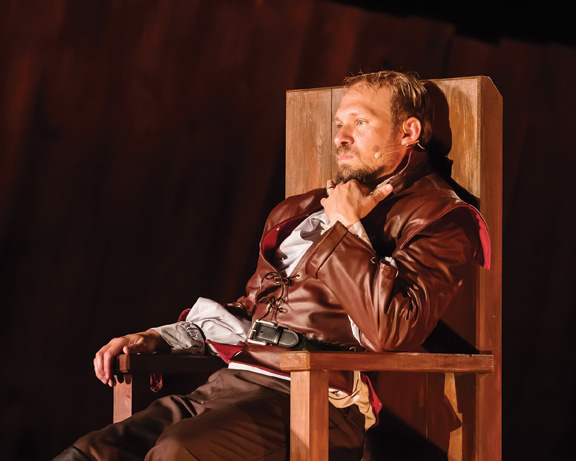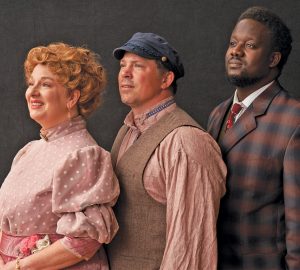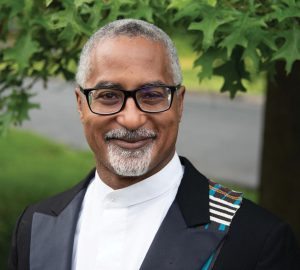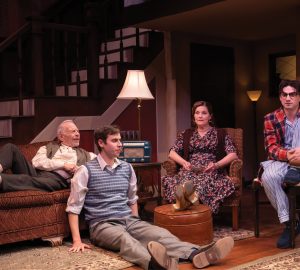For a man who had almost no say about who would govern him, Shakespeare was fascinated by kings. Who was a good king, who was a bad king—Richard II, Richard III, Macbeth, Lear, Hamlet, Hamlet’s father, his uncle Claudius?
Shakespeare makes it pretty clear that he doesn’t think much of either Richard, and however good a general Macbeth may have been, he obviously didn’t have what it takes to move up a notch. Many have viewed Shakespeare’s picture of King Henry V as the playwright’s description of something like an ideal king. Certainly Henry interested him. He wrote three plays about him. Two of them, Henry IV, Part 1, and Henry IV, Part 2, are named for his father, but Prince Hal is the central figure. And in the play actually named for him, Henry V, he moves from victory to improbable victory passing through a decidedly human array of emotions: doubts and humility, concern for the common people, rousing pep talks before battle. He’s a most attractive figure, yet he also has faults; Shakespeare’s is not a simplistic view.
You have a rare opportunity now to make up your own mind about King Henry V and Shakespeare’s opinion of him: Shakespeare Festival St. Louis is performing all three of the Henry plays. Actually, they are doing only some parts of Henry IV 1 and 2, making one play out of the two. It’s mostly Part 1, which has a clear dramatic arc that follows the growth and development of young Prince Hal. Part 2 is considered a lesser work, but it ends with the death of Henry IV, the coronation of Henry V, and his rejection of the companions of his misspent youth—mostly personified in that great tub of guts, Falstaff. This makes a more resounding conclusion than Part 1 has. And it does keep in focus what Tim Ocel, the director of Henry IV, described as the story thread that guided their condensation of the two plays: “the story of Prince Hal’s positioning between his father, King Henry IV, and Hal’s slumming partner, Sir John Falstaff.”
Thanks to Ocel’s direction and the performances of the cast, the Shakespeare Festival is bringing us an admirably clear presentation of the story. The multiple levels in Scott C. Neale’s set encourage dynamic physical action. But however active the players are, their lines are always crystal clear. Like their creator, these characters love words. Even Falstaff—or perhaps especially Falstaff—speaks in carefully shaped sentences, utilizing all the rhetorical devices Shakespeare learned in grammar school, and Tony DeBruno makes the most of them, even as he generates laughter. All the cast speak the speech as Prince Hamlet would have liked: Jim Butz’s Prince Hal—though I had hoped for more depth in Butz’s portrayal, Michael James Reed’s King Henry, Charles Pasternak’s explosive Hotspur, Gary Glasgow’s Lord Chief Justice, Jerry Vogel’s Sir Walter Blunt, Anderson Matthews’ Worcester, Joneal Joplin’s Northumberland, Alex Miller’s Douglas, Dakota Mackey-McGee’s Lady Percy, Kari Ely’s Mistress Quickly, Andrew Michael Neiman’s Ned Poins—so aware of his precarious position as Hal’s tavern friend.
Henry V has now opened, but too recently for me to include it in this report. The two plays will alternate nights in Forest Park through June 15, with two double-feature Saturdays, June 7 and 14, when you can see both plays in one afternoon and evening. It’s a rare opportunity.
By Bob Wilcox
Photo: David Levy
Pictured: Jim Butz as Henry V








